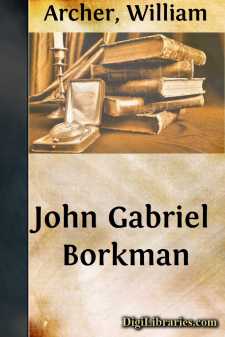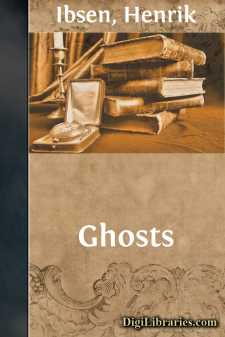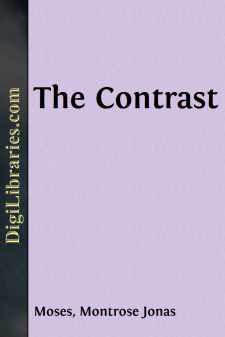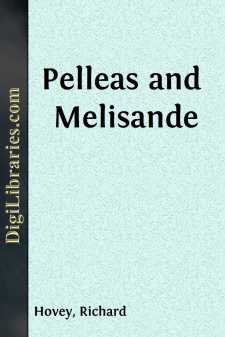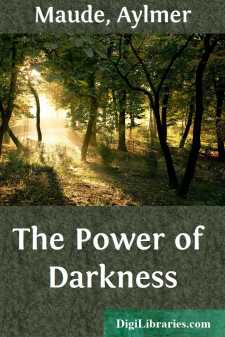Drama Books
Sort by:
by:
George Farquhar
PREFACE The Author. 'It is surprising,' says Mr. Percy Fitzgerald, 'how much English Comedy owes to Irishmen.' Nearly fifty years ago Calcraft enumerated eighty-seven Irish dramatists in a by no means exhaustive list, including Congreve, Southerne, Steele, Kelly, Macklin, and Farquhar—the really Irish representative amongst the dramatists of the Restoration, the true prototype of...
more...
WASTE At Shapters, George Farrant's house in Hertfordshire. Ten o'clock on a Sunday evening in summer. Facing you at her piano by the window, from which she is protected by a little screen, sits Mrs. Farrant; a woman of the interesting age, clear-eyed and all her face serene, except for a little pucker of the brows which shows a puzzled mind upon some important matters. To become almost an...
more...
by:
William Archer
INTRODUCTION.* The anecdotic history of John Gabriel Borkman is even scantier than that of Little Eyolf. It is true that two mentions of it occur in Ibsen's letters, but they throw no light whatever upon its spiritual antecedents. Writing to George Brandes from Christiania, on April 24, 1896, Ibsen says: "In your last letter you make the suggestion that I should visit London. If I knew enough...
more...
by:
Henrik Ibsen
ACT I (SCENE.—A large room looking upon a garden door in the left-hand wall, and two in the right. In the middle of the room, a round table with chairs set about it, and books, magazines and newspapers upon it. In the foreground on the left, a window, by which is a small sofa with a work-table in front of it. At the back the room opens into a conservatory rather smaller than the room. From the...
more...
ROYALL TYLER (1757-1826) William Dunlap is considered the father of the American Theatre, and anyone who reads his history of the American Theatre will see how firmly founded are his claims to this title. But the first American play to be written by a native, and to gain the distinction of anything like a "run" is "The Contrast," by Royall Tyler. Unfortunately for us, the three hundred...
more...
by:
Euripides
Introduction[1] The Electra of Euripides has the distinction of being, perhaps, the best abused, and, one might add, not the best understood, of ancient tragedies. "A singular monument of poetical, or rather unpoetical perversity;" "the very worst of all his pieces;" are, for instance, the phrases applied to it by Schlegel. Considering that he judged it by the standards of conventional...
more...
by:
Richard Hovey
SCENE I.—The gate of the castle. MAIDSERVANTS (within). Open the gate! Open the gate! PORTER (within). Who is there? Why do you come and wake me up? Go out by the little gates; there are enough of them!… A MAIDSERVANT (within). We have come to wash the threshold, the gate, and the steps; open, then! open! ANOTHER MAIDSERVANT (within). There are going to be great happenings! THIRD MAIDSERVANT...
more...
by:
Aylmer Maude
ACT I The Act takes place in autumn in a large village. The Scene represents Peter's roomy hut. Peter is sitting on a wooden bench, mending a horse-collar. AnÃsya and AkoulÃna are spinning, and singing a part-song. PETER [looking out of the window] The horses have got loose again. If we don't look out they'll be killing the colt. NikÃta! Hey, NikÃta! Is the fellow...
more...
by:
Bernard Shaw
PROLOGUE The tableau curtains are closed. An English archdeacon comes through them in a condition of extreme irritation. He speaks through the curtains to someone behind them. THE ARCHDEACON. Once for all, Ermyntrude, I cannot afford to maintain you in your present extravagance. [He goes to a flight of steps leading to the stalls and sits down disconsolately on the top step. A fashionably dressed lady...
more...
HOW TO BE A GOOD RADIO ACTOR The play in this book has actually been produced on the radio. Possibly you have listened to this one when you tuned in at home. The persons whose voices you heard as you listened, looked just as they did when they left their homes to go to the studio, although they were taking the parts of men and women who lived long ago and who wore costumes very different from the ones...
more...




